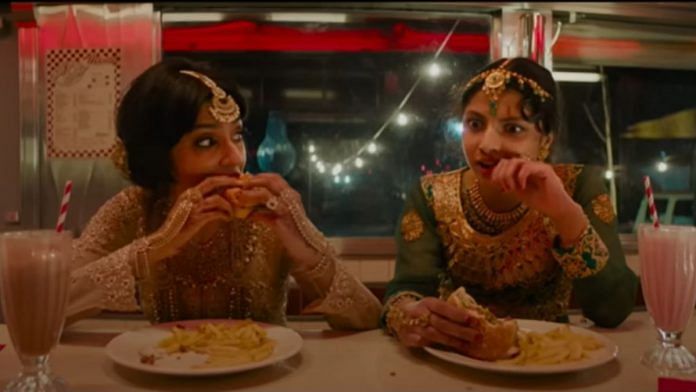British-Pakistani director Nida Manzoor’s Polite Society is a homage to girls who aren’t. Filled with all kinds of teenage awkwardness—from righteous sisterly anger to ‘no one understands me’—the film devolves into its own version of an absurd and overblown superhero flick, all the while remaining self-aware and true to its zany protagonist.
Representation is the South Asian diaspora’s favourite cause, and they fight for it every chance they get. Manzoor, who also directed two episodes of the world’s longest running television show Doctor Who, wedges her way through the door: offering a slice of British-Pakistani life. We have conservative parents oblivious to the dreams of their daughters, teenagers navigating raging hormones under a parental veil of protection, and of course, marriage, which forms the nucleus of the plot.
Misfits in the hoity-toity world
Priya Kansara plays Ria Khan. Her martial art skills are subpar at best, even as she aspires to be a stuntwoman. There is nothing sad about Ria’s mediocrity, as it comes cocooned by teenage bluster—which is nothing short of delightful. Much like Devi from Never Have I Ever, Ria is infuriating. She is selfish, impulsive and embroils herself and her ever-faithful friends in a string of mishaps that are all her fault. And she never takes any responsibility. But unlike Devi, Ria is driven by someone other than herself.
Manzoor wants Polite Society to be a celebration of sisterhood; a showing of how it trumps everything else. But Ria’s sister Lena’s (played by Ritu Arya) unwillingness to listen to her, even when the signs are glaring and the flags are redder than ever, not only comes across as unrealistic but also unfaithful to what Mazoor is trying to achieve.
The Khan sisters are misfits who struggle to belong to the upper-class Pakistani-Muslim community their parents want them to. Ria is furious when her parents expect her to attend “a hoity-toity pretentious Eid soiree.” Dialogues like this make the film glow, they are more-or-less well-timed and serve as a reminder of the benefits of writing what you know. They pack a definitive punch.
Also read: Mani Ratnam’s PS: II is a gripping game of thrones. But viewers must brave through its slow pace
Showstopper outfits
A superhero flick can’t exist without a villain, and a Disney princess without an evil stepmother. Polite Society doesn’t conform entirely to either of these tropes, but there are some clear nods. Pakistani actor Nimra Bucha plays Raheela, a vamp-like figure hanging on to the smithereens of her fading youth.
The film climaxes at a wedding (with a fun dance to Devdas’ (2002) maar-daala. In this scene, Kansara’s looks could kill), but the real showstopper is Raheela’s outfit. It is a pink brocade suit of sorts, with matching thigh-high boots and an actual cape. Props to costume designer PC Williams. South-Asian outfits in Western films and TV shows are garish to the point of being offensive. But, in the case of Polite Society, everything appears to be deliberate.
It isn’t just the people; it’s important for films to also pay their respects to those who came before them; on whose shoulders they stand. The characters, the emphasis on sport, the hilarity of the South Asian diaspora: you are only thinking of Bend it Like Beckham. Back in 2002, Gurinder Chadha introduced us to wonderful, zany idiosyncrasies of the South Asian community, portraying them as eccentric and exuberant. Polite Society doesn’t have to overthink how its world is coming across. Because it was already done, 20 years ago. Instead, it has the privilege of going further.
It risks doing too much too fast, meshing together disparate tropes (there is a secret lab involved), but manages nonetheless, courtesy smart writing that tempers an occasionally ridiculous plot.
But even then—absurdity has its own place. It sells.
(Edited by Ratan Priya)



